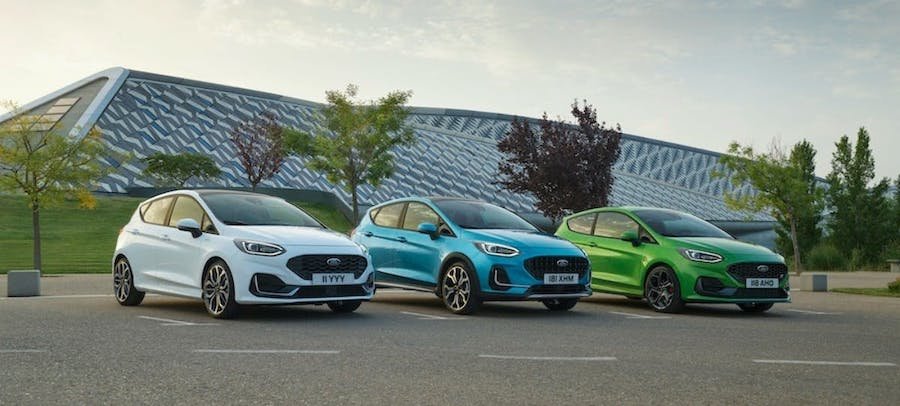Electric Ford Fiesta on Volkswagen platform remains possible

Ford has not ruled out using the VW Group's new MEB Entry platform for a reborn electric Fiesta - but such a car is not an immediate priority.
The Ford Fiesta bowed out of production last week after 47 years and seven generations, to make way for the new electric Ford Explorer SUV – based on Volkswagen's MEB platform – to replace it on the production line at Ford's Cologne factory in Germany. Ford has voiced no plans to replace the ever-popular supermini with an electric equivalent, instead targeting higher-margin segments as it replaces its European passenger car line-up wholesale.
But now, in an interview with Automotive News Europe, Ford's European boss Martin Sander has again hinted at the lingering possibility for such a car to become reality - having previously suggested to Autocar the project was not completely off the cards.
He said Ford has "a very constructive and positive cooperation with Volkswagen and we are possibly exploring opportunities to take that to the next level." Already, Ford has confirmed plans to follow up the Explorer with a second electric SUV based on the full-sized MEB architecture (thought to be called the Capri), and left open the possibility of future collaborations with Wolfsburg beyond that.
A decision has still yet to be made on whether Ford will use the smaller MEB Entry platform for one of its own cars, but as Sander previously told Autocar: "Not decided does not mean we have decided to do it."
Sander told Autocar that, without Volkswagen’s platform, Ford "wouldn’t have an electric volume[-selling] vehicle in the market in Europe right now”.
The MEB Entry platform made its debut as the basis of the Volkswagen ID 2all concept – a compact and affordable electric hatchback touting Volkswagen Golf levels of practicality.
The ID 2all, which will become the ID 2 when it reaches production in 2025, is not dissimilar in shape and size to the now-retired Fiesta, and with a target price of £22,000, is closely matched in positioning, too.
But first, Ford is developing its own global EV architecture for use on future products and evaluating building vehicles on this platform in Valencia.
"Our first priority is to get our own platform and our own technology to Europe, because I really believe we are building a very, very competitive platform,” Sander told ANE.
The company is also readying an electric version of the Ford Puma atop adapted ICE architecture, which will also underpin an electric version of the new Ford Tourneo Courier and Ford Transit Courier.
VW boss Thomas Schäfer was non-committal when asked if his company could consider partnering with other manufacturers to develop its smaller MEB Entry architecture. “It could be an option,” he said at the unveiling of the ID 2. “But for now, we think that with the scale that we have, we can do it ourselves. We’re looking at a couple of options at the moment.”
He did, however, say the firm would be open to offering the platform out to third parties once it is ready.
A direct replacement for the Ford Fiesta is not an immediate priority for Ford in any case. As Sander put it: “We have to be wise in our choices and decide where to spend our money, where to make the necessary investment in order to get to a positive business case.”
He added: “At the moment, with battery costs where they are, I don’t see an electric Fiesta any time soon.” But Sander is keen to position the Puma as the “utility version” of the Fiesta and he said it will remain on sale “for many years” following the introduction of the EV version next year.
It will be priced some way clear of the ID 2’s mooted £22,000 start point but will stay true to the value billing of the petrol car by comfortably undercutting the £40,000-plus Explorer.
